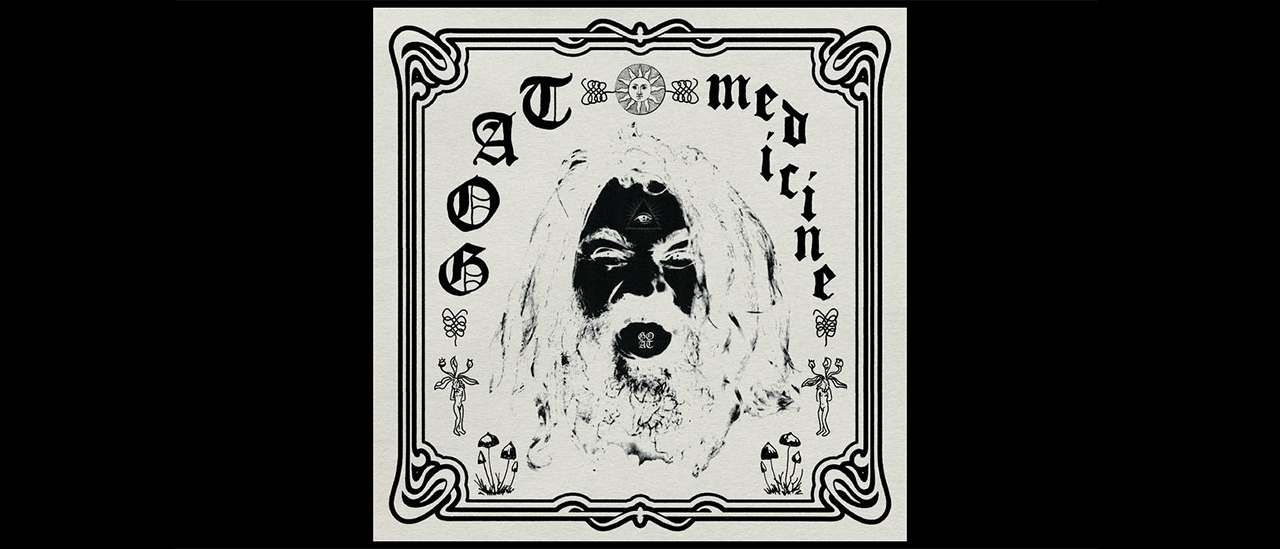You can trust Louder
Somewhere in the distance, as if at the end of a long tunnel, monks are chanting. A bell rings, but it’s barely audible. It might not even be there at all. And then a disembodied, echoing voice intones an introduction: ‘So, shall we practise a little meditation together?’ To which the only answer is: “Oh, go on, then.”
Music starts, but it’s not like regular, Earthly music. It instead sounds like Venus In Furs-era Velvet Underground playing an early Black Sabbath riff, but in the desert. At night. There’s some wah-wah, and some more wah-wah, and some flute, and everything teeters on the cusp of collapse. There’s a guitar solo that seems to go on for days, and, somewhere, lifting the song high into the WTF-o-sphere, a lone voice howls and soars.
As far as introductions to albums go, the beginning of Impermanence & Death – the bewildering opening track of Goat’s equally mind-bending fifth studio album, Medicine – sets the scene perfectly for a collection of songs that venture to the kind of places songs rarely venture. If, indeed, they can be called songs at all.
Released less than a year after the wild, genre-defying Oh Death, it sees the enigmatic Swedish mavericks taking that album’s hazy-edged template (psychedelia, prog, Afrobeat, stoner rock, free jazz, weird folk, krautrock, celtic paganism, eastern mysticism and noodle dance all feed into the mix) and twisting it into more mellifluous shapes, the soundtrack to the burning of a wicker man at the end of the universe. Quite frankly, it’s bonkers. And it’s also rather beautiful.
Raised By Hills sounds like an outtake from Jethro Tull’s Songs From The Wood, giving its campfire folk a distinctly spectral twist. I Became The Unemployment Office heads further into space, a motorik chug wrapped in reverb, with guitars that slowly unfurl and unwind. TSOD, with its rattling sitar and pirouetting flute, is a three-minute song that somehow stretches towards nirvana, and George Harrison would have loved it.
Vakna is twice as lengthy but feels half as long, with guitars that swell and stretch and never really go anywhere but it clearly doesn’t matter. You’ll Be Alright gently unspools in a sea of distant tablas, distorted guitar and more flute. Join The Resistance, originally recorded by fellow Swedes Gås, returns to Tony Iommi territory, with banshee wails bringing ritualistic fervour to an already maniacal mix, before dipping towards doom metal at the death.
It all ends with Tripping In The Graveyard, which somehow combines all of the above, climbing another rung on the ladder to divinity, before fading as the monks return and temple bells chime.
Medicine is on sale now via Rocket Recordings.

Online Editor at Louder/Classic Rock magazine since 2014. 39 years in music industry, online for 26. Also bylines for: Metal Hammer, Prog Magazine, The Word Magazine, The Guardian, The New Statesman, Saga, Music365. Former Head of Music at Xfm Radio, A&R at Fiction Records, early blogger, ex-roadie, published author. Once appeared in a Cure video dressed as a cowboy, and thinks any situation can be improved by the introduction of cats. Favourite Serbian trumpeter: Dejan Petrović.

